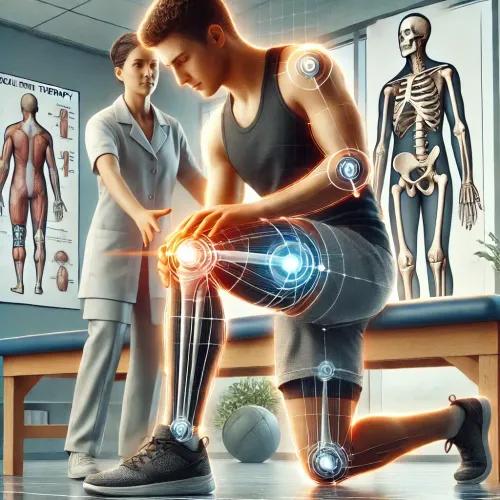
Physical Therapy
Physical therapy is a cornerstone of non-surgical knee pain treatment, focusing on exercises that strengthen the muscles around the knee. A physical therapist can design a personalized exercise program that targets the specific needs and limitations of the patient, helping to improve mobility and reduce pain. Regular physical therapy can prevent further injury and promote long-term knee health.
Some Medication and Pain Management
Over-the-counter medications, such as acetaminophen and nonsteroidal anti-inflammatory drugs (NSAIDs), are often used to manage knee pain. These medications can reduce inflammation and provide relief, making it easier for patients to engage in physical activity and other treatments. For more severe pain, doctors might prescribe stronger medications or recommend injections of corticosteroids or hyaluronic acid.
Lifestyle Modifications
Lifestyle changes can play a significant role in reducing knee pain and preventing further damage. Maintaining a healthy weight reduces the stress on the knees, while low-impact exercises like swimming and cycling can improve joint function without overloading the joint. Wearing supportive footwear and using assistive devices, such as knee braces or walking aids, can also help minimize pain during daily activities.
Alternative Therapies
Alternative therapies such as acupuncture, chiropractic care, and massage therapy can complement traditional treatments for knee pain. Acupuncture involves inserting thin needles into specific points on the body to relieve pain, while chiropractic care focuses on aligning the body to promote healing. Massage therapy can reduce muscle tension and improve circulation, potentially alleviating knee pain.
Nutritional Supplements
Some people find relief from knee pain through nutritional supplements like glucosamine and chondroitin, which are believed to support joint health. Omega-3 fatty acids and antioxidants found in foods like fish, nuts, and berries can also help reduce inflammation. Before starting any supplements, it’s important to consult with a healthcare provider to ensure they are safe and appropriate for your specific condition. Exploring non-surgical treatments for knee pain can offer effective relief and improve quality of life. By combining various therapies and making lifestyle adjustments, individuals can manage their symptoms and enjoy greater mobility without the need for surgery.
